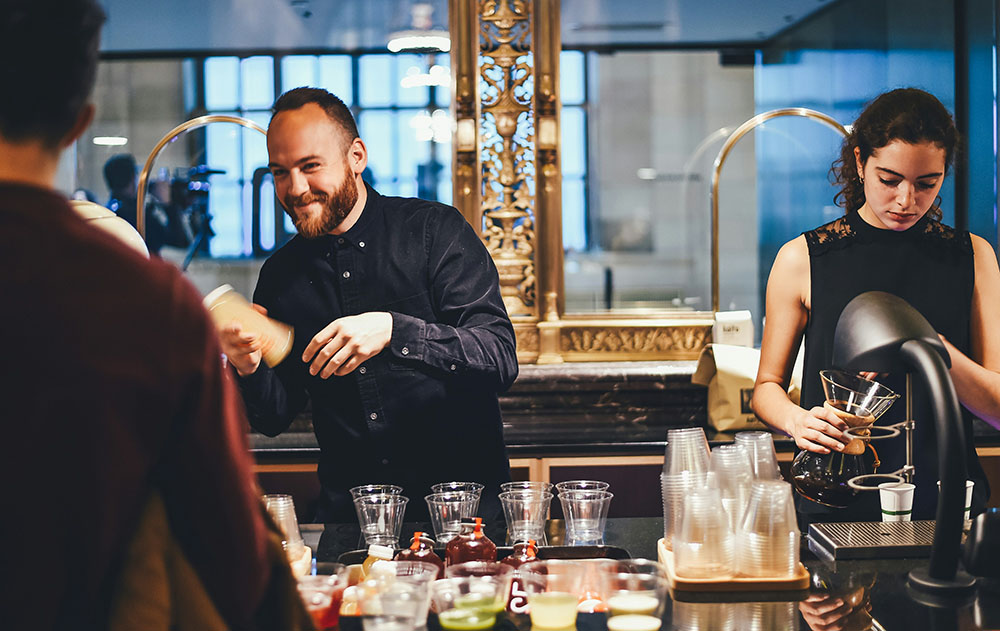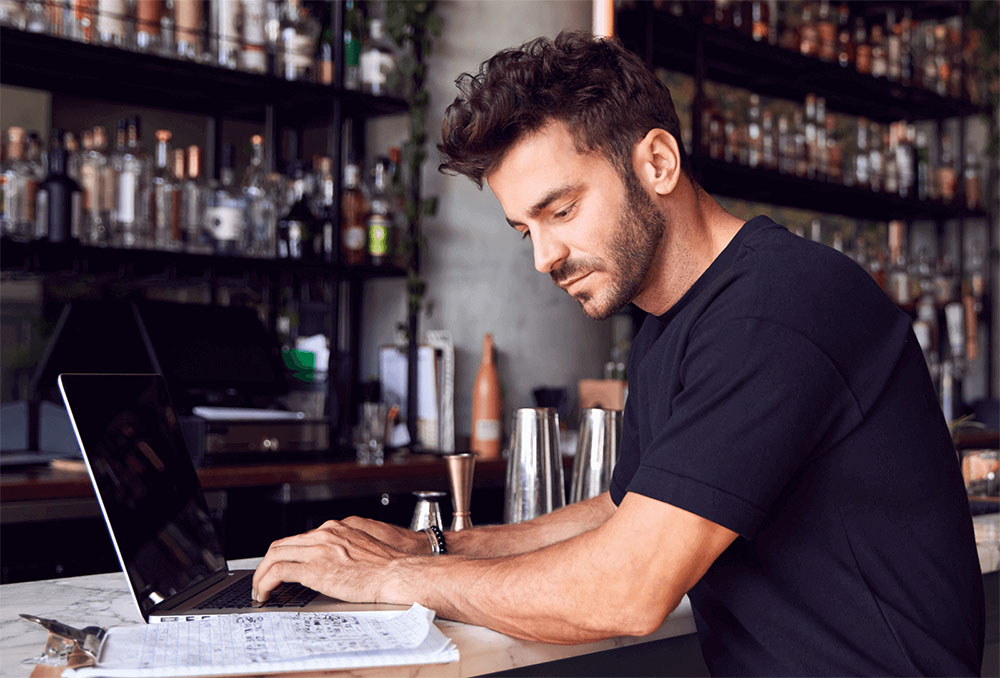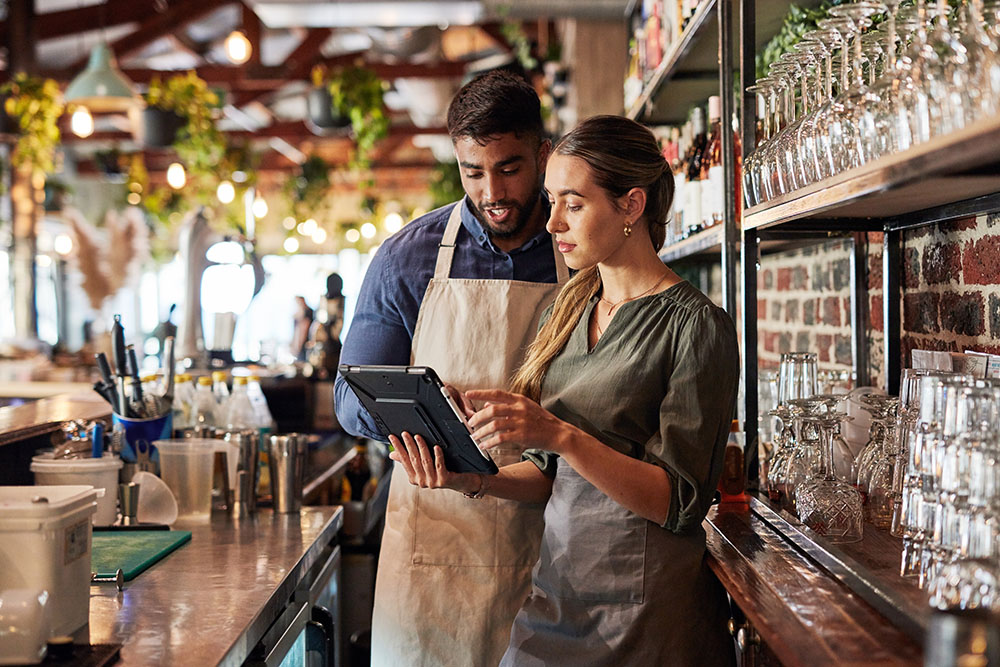Liquor license requirements for restaurants
Looking to serve alcohol at your restaurant and want to learn how to get a liquor license? This piece is just for you! We explore why liquor licensing for restaurants exists, variations in state laws and requirements, the process of getting a liquor license for a restaurant, and more.
Why does liquor licensing exist in the U.S.A.?
Keeping diners safe in a restaurant goes beyond preventing the spread of foodborne illnesses – it also extends to the responsible serving of alcohol. That means, preventing drunkenness and creating a welcoming atmosphere for everyone.
Beyond safety, it also generates revenue through alcohol taxes and fees, which can be used for community projects.
Additionally, it protects public health by ensuring alcohol quality and regulating its distribution. Finally, liquor licensing sets standards for businesses selling alcohol, ensuring fair practices and preventing illegal activities, which levels the playing field for all.

What are some of the variations of liquor licenses across the states?
Liquor licensing requirements vary a lot depending on which state you’re in. We’ve listed a few factors any variances that exist below.
The types of liquor licenses
Different states issue varying types of licenses based on your establishment e.g., bar, restaurant, liquor store. This also extends to the type of alcohol sold (e.g., beer, wine, spirits). It may help if you review what information you need to provide to local officials before applying for a liquor license for a restaurant, just to save yourself some time and effort.
Quota systems
Some states, like New Jersey and Florida, have quota systems limiting the number of available licenses, making them scarce and often expensive. This cost can make or break a business, so consider the liquor license requirements for your restaurant based on its location.
Dry counties
Where you set up shop, geographically speaking, can determine whether or not you are able to serve drinks. Certain areas in states like Kentucky and Texas prohibit the sale of alcohol entirely. These areas are known as a dry county. Review your local laws and consult with a civic official before opening your business if you plan to serve liquor.
Hours of operation and sale
The regulations around when you can sell liquor, whether that be the time or day of the week, can vary depending on your location. For instance, some states allow 24/7 sales, while others have strict limitations. Review your local laws and act accordingly to prevent any issues.
Compliance requirements
Training, background checks, and license renewal processes differ by state. Some states require server training programs, like TIPS (Training for Intervention Procedures), while others only require on-the-job training. Figure out what is required in your state and base your compliance process around this.

How to get a liquor license for a restaurant?
Research local requirements
Get a grasp of the specific liquor licensing requirements for restaurants and the types of licenses available in your state and local area.
Prepare necessary documents
Gather required documents such as business licenses, tax identification numbers, property leases, and personal identification for background checks.
Complete application
Fill out the liquor license application form available from your local Alcohol Beverage Control (ABC) agency or equivalent authority.
Pay fees
Pay the application and licensing fees as specified by the local authority. This can be anywhere from $50 to $300,000, depending on your location.
Submit application
Submit the completed application and all required documents to the appropriate local agency. Always remember to triple-check all required documents. If you have the time and budget have a legal professional review your documents prior to submission.
Pass inspections
Your restaurant will typically undergo inspections by health and safety officials. They may check to see you have appropriate lighting and seating around your bar, adequate supply of drinking water, and compliant bathroom facilities.
Attend public hearings
In some cases, public hearings or community board meetings are required to gauge local opinion on your application.
Wait for approval
The review and approval process can take several weeks to months. So, all you can really do is play the waiting game – and no, we’re not referring to a game with your servers.
Receive your license
Once approved, you will receive your liquor license, allowing you to legally sell alcohol at your restaurant.

What are the penalties for liquor license non-compliance?
- Fines.
- License suspension.
- License revocation.
- Legal action.
- Reputational damage.
How Operandio’s compliance software can help your remain liquor license compliant
Automate license tracking and renewals
Our software can be programmed to send you license renewal, inspection, and training deadline reminders. It can also be used to store relevant documents and licenses in one place for easy access and audit purposes.

Digital-based staff training
Our mobile-first training platform allows you to provide engaging and effective training directly to your staff. This can be paired excellently with state or county enforced training requirements.
Incident reporting and documentation
Using our digital-based checklist templates, you and your managers can log any compliance-related incidents, such as sales to minors or violations of serving hours, and take corrective actions. If you like the sound of Operandio, you’re going to love this: we offer a free demo! Book yours today and say goodbye to traditional compliance tracking methods and hello to the future.


